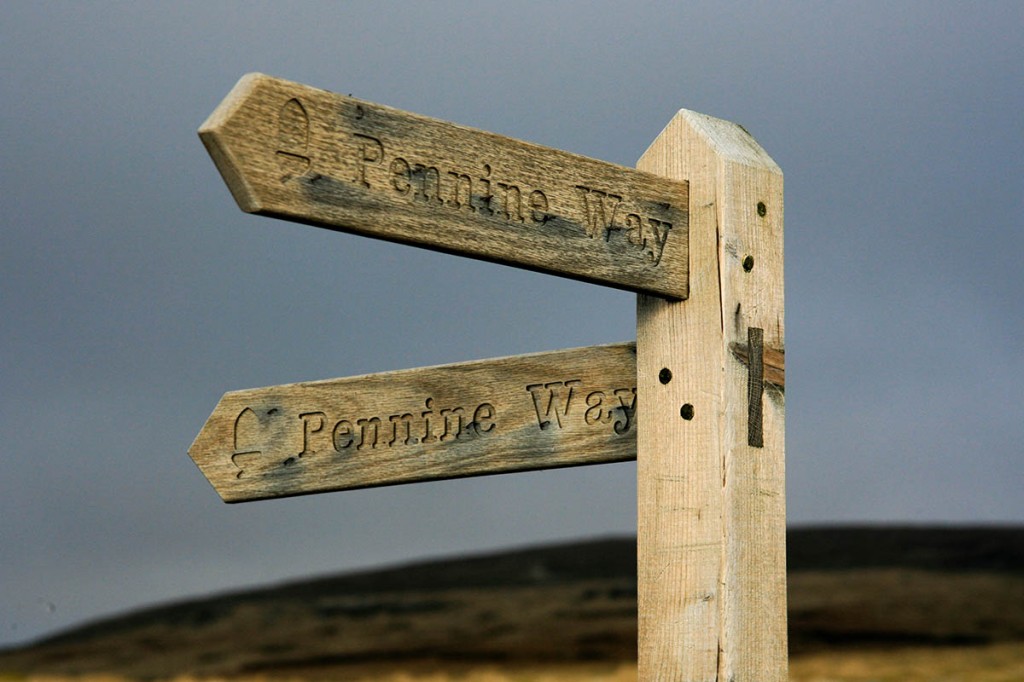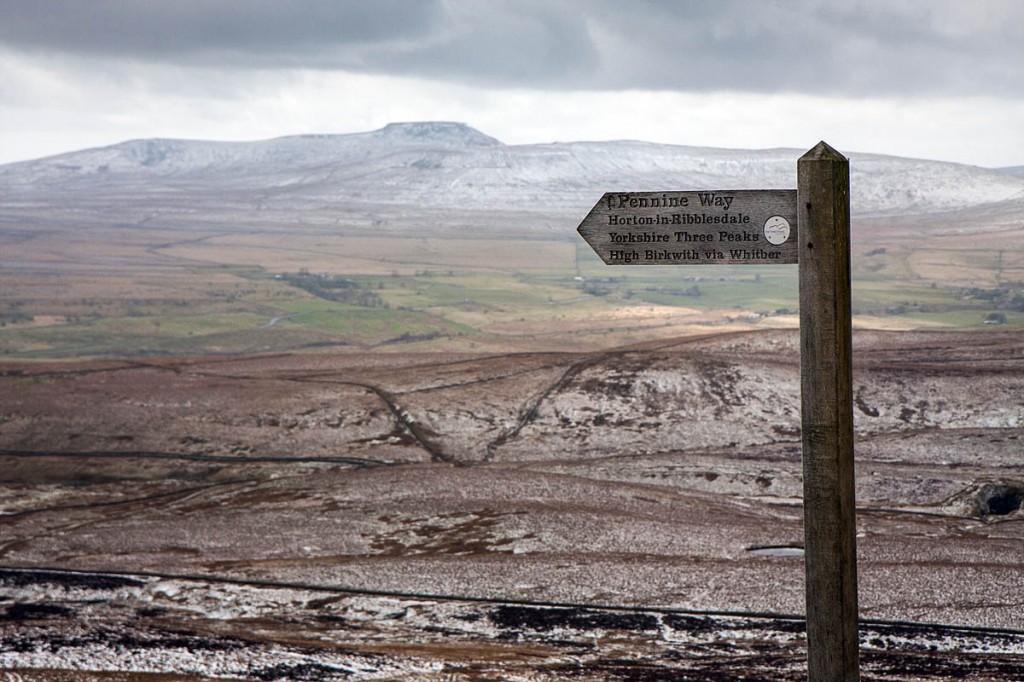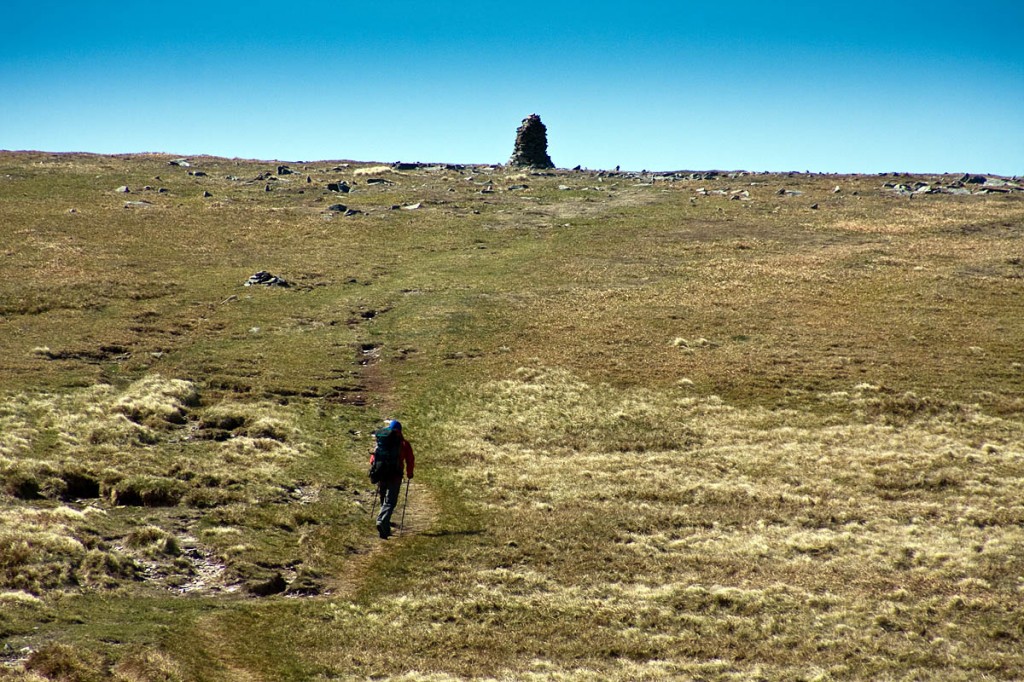A group that was instrumental in the establishment of Britain’s first national trail has announced it is to disband, in the year the route celebrates 50 years’ existence.
It will be the second time the Pennine Way Association has dissolved itself in response to changing circumstances.
Its members voted to wind up the group at its annual meeting. Its work will be passed on to an organisation based in Hebden Bridge which said it hopes to continue the association’s website in an updated form.
A spokesperson for the Pennine Way Association said: “Many officers had decided to retire, and it is clear that the internet, social media and comprehensive guide books increasingly meet people’s needs.
“We have begun talks with Pennine Heritage, a lottery-funded environmental charity set up to rescue, preserve and record the unique heritage of the Pennines. We intend to digitise our records and produce an explanatory narrative.
“Pennine Heritage have offered to host the records on their website. They also wish to develop a New PWA presence by taking on and enhancing our PWA website.
“Pennine Heritage already promote a successful network of ‘e-trails’ in the South Pennines and are considering a further series incorporating the Pennine Way. Meanwhile Dave Brooks, a trustee of Pennine Heritage, the owner and manager of Hebden Bridge Hostel, a keen long-distance walker and a member of the PWA, has offered to work with us to help the transition.
“Dave sees the possibility of a new PWA operating as a membership organisation, and envisages a time when Pennine Heritage, as umbrella charity to a new PWA, could promote and reinvigorate our most important national trail.”
In 1935 Tom Stephenson called for ‘a long green trail’. Three years later the Pennine Way Association was formed to define and campaign for the route.
Its task completed, the association disbanded after 24 April 1965 when the Way was officially opened.
Five years on, Tom Stephenson and the then Ramblers Association called for a Pennine Way Council. Its mission was to ‘act as a focus of public interest in Britain’s first and most famous long-distance footpath’ and to preserve the spirit and intent of the early campaigners.
It acted as a forum where representatives of voluntary organisations and the various county, borough, district and parish councils, and associate members, could discuss problems of mutual concern. The late John Needham began publishing his renowned accommodation guide.
By the early 1990s all maintenance was overseen by English Nature, a forerunner of the present Natural England.
The association spokesperson said: “No longer seeing a need for its coordination role, the council re-invented itself as the Pennine Way Association. Its primary purpose has been to protect and preserve the Pennine Way for the benefit of the public.
“The association established close liaison with the national trail officer, provided an advisory service to would-be walkers, published bi-annual newsletters and made representations for or against development proposals along the route.
“Since Bob Dylan made the British charts in 1965 with The Times They Are a-Changing, the association has changed when necessary. It disbanded, reinvented itself twice and made changes to its constitution. Some of its leading figures have served for decades, and fresh blood has been hard to find.
“The accommodation guide has been eclipsed by online search engines and comprehensive guide books. The internet is now the home for walkers’ descriptions of their successes and failures. Management of the fabric of the Way is being transferred to a trail partnership managed by Yorkshire Dales national park.”
The PWA annual general meeting decided that members of the executive committee will remain in post until 31 December 2015 to complete the winding up of the association. They will also liaise with the new trail partnership and walkers’ groups along the Way with a view to encouraging voluntary effort to report maintenance needs.



Des de Moor
20 April 2015Interesting news. One factual correction: the Countryside Commission was the predecessor to Natural England that once looked after the Pennine Way. English Nature was indeed also a predecessor to NE but to the best of my knowledge it never had a responsibility for National Trails.